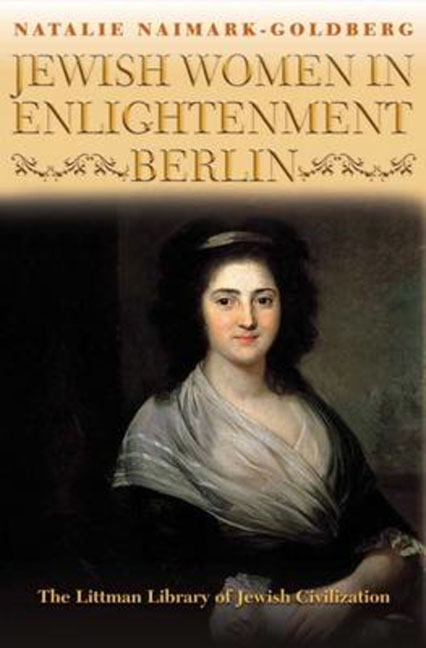Book contents
- Frontmatter
- Dedication
- Acknowledgements
- Contents
- List of Illustrations
- Note on the Translation of Sources and the Use of Names
- Note on Transliteration
- Introduction
- 1 Private Letters: An Alternative Sphere for Cultural Discourse
- 2 Jewish Women and the Reading Public
- 3 Going Public: Jewish Women in the Field of Literature and Publishing
- 4 Sociability and Acculturation in German Spas
- 5 Social Gatherings in Private Homes
- 6 Female Emancipation
- 7 Between Acculturation and Conversion
- 8 Conclusion
- Bibliography
- Index
1 - Private Letters: An Alternative Sphere for Cultural Discourse
- Frontmatter
- Dedication
- Acknowledgements
- Contents
- List of Illustrations
- Note on the Translation of Sources and the Use of Names
- Note on Transliteration
- Introduction
- 1 Private Letters: An Alternative Sphere for Cultural Discourse
- 2 Jewish Women and the Reading Public
- 3 Going Public: Jewish Women in the Field of Literature and Publishing
- 4 Sociability and Acculturation in German Spas
- 5 Social Gatherings in Private Homes
- 6 Female Emancipation
- 7 Between Acculturation and Conversion
- 8 Conclusion
- Bibliography
- Index
Summary
IN MARCH 1793 Rahel Levin received an excited letter from her friend David Veit in the city of Gotha. The reason he was so thrilled was clear: carrying a letter of recommendation from the writer Karl Philipp Moritz, and accompanied by his uncle, the Berlin banker Simon Veit, the Jewish medical student had been received very politely by the celebrated poet, writer, and playwright Johann Wolfgang von Goethe at his residence in Weimar. As the young Veit indicated in his letter to Levin, with whom he had established a close friendship in the years he had spent in the Prussian capital Berlin, in the course of his journey he had also had audiences with other famous men of letters: ‘I really saw them all, and engaged in quite extensive conversations with each one of them—Goethe, Wieland, Herder.’ Veit described in meticulous detail the short visits he had paid to these distinguished intellectuals and his impressions of each of them. His correspondent—the eldest child of Levin Marcus, a wealthy banker and jewellery dealer, and his third wife, Chaie—had no difficulty in recognizing the individuals he described, even though she had never met them face to face. Still only in her early twenties, she already displayed an impressive familiarity with the writings of these authors, to the point of being able to analyse their individual attributes. Sharing the contents of the letter with members of her family and friends, including ‘Mrs Veit’—Dorothea Mendelssohn, who was married to David Veit's uncle Simon, mentioned above—Rahel avidly read every word written by her friend about these luminaries of German culture, from his descriptions of their physique and dress to their utterances and their attitude towards their guests. Bitterly regretting that her woman's eyes were forbidden to enjoy these exciting sights and were expected to find satisfaction in ‘Berlin’s pavement’ only, she asked him to go on sharing with her the experiences of his journey.
Even in that first letter (of those preserved) from the many exchanged between Rahel Levin and David Veit, it is apparent that the initial impression of a man who sees, learns, knows, and transmits his knowledge to a woman who listens passively and receptively is an illusion.
- Type
- Chapter
- Information
- Jewish Women in Enlightenment Berlin , pp. 31 - 63Publisher: Liverpool University PressPrint publication year: 2013



